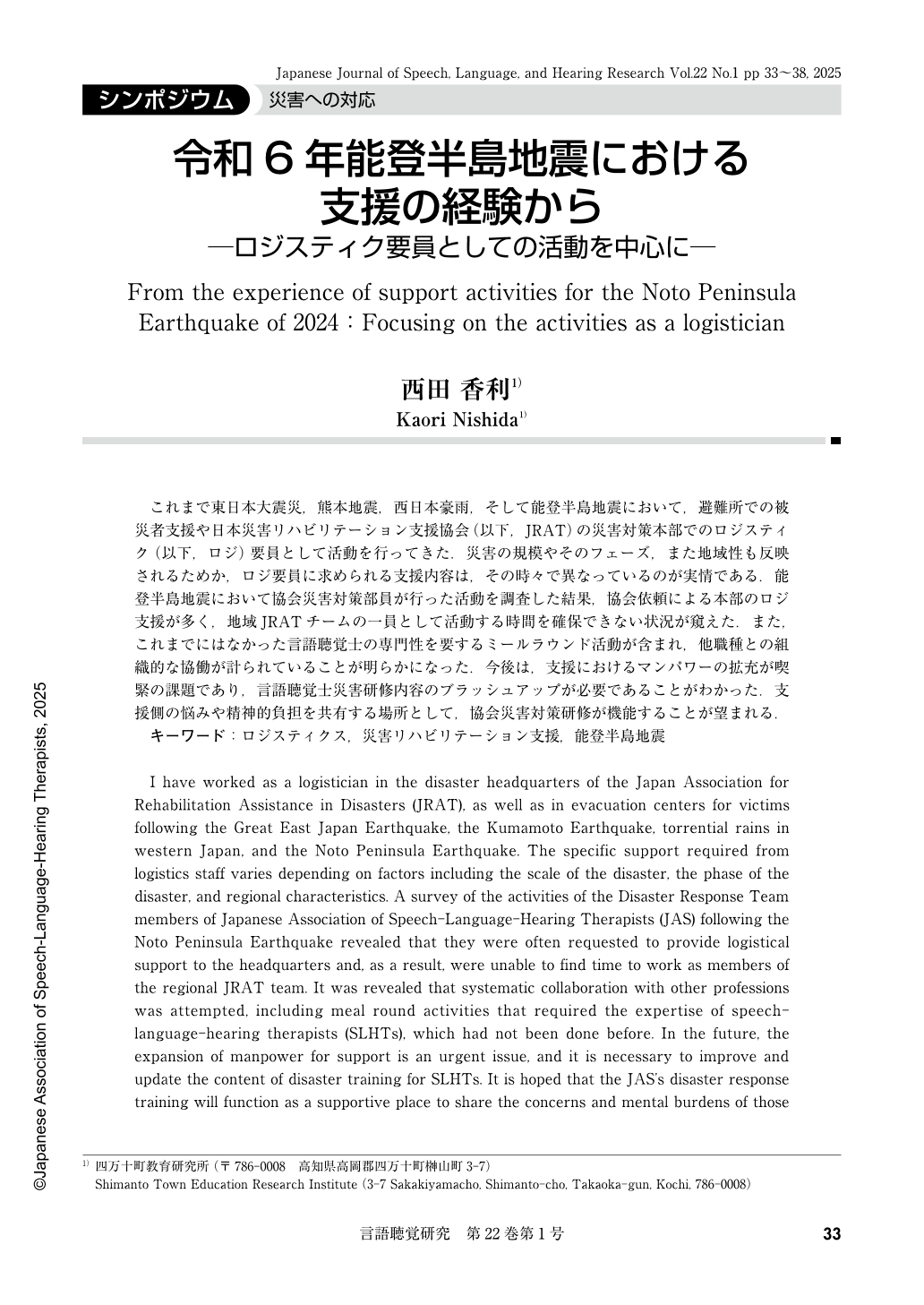Japanese
English
- 有料閲覧
- Abstract 文献概要
- 1ページ目 Look Inside
- 参考文献 Reference
これまで東日本大震災,熊本地震,西日本豪雨,そして能登半島地震において,避難所での被災者支援や日本災害リハビリテーション支援協会(以下,JRAT)の災害対策本部でのロジスティク(以下,ロジ)要員として活動を行ってきた.災害の規模やそのフェーズ,また地域性も反映されるためか,ロジ要員に求められる支援内容は,その時々で異なっているのが実情である.能登半島地震において協会災害対策部員が行った活動を調査した結果,協会依頼による本部のロジ支援が多く,地域JRATチームの一員として活動する時間を確保できない状況が窺えた.また,これまでにはなかった言語聴覚士の専門性を要するミールラウンド活動が含まれ,他職種との組織的な協働が計られていることが明らかになった.今後は,支援におけるマンパワーの拡充が喫緊の課題であり,言語聴覚士災害研修内容のブラッシュアップが必要であることがわかった.支援側の悩みや精神的負担を共有する場所として,協会災害対策研修が機能することが望まれる.
I have worked as a logistician in the disaster headquarters of the Japan Association for Rehabilitation Assistance in Disasters (JRAT), as well as in evacuation centers for victims following the Great East Japan Earthquake, the Kumamoto Earthquake, torrential rains in western Japan, and the Noto Peninsula Earthquake. The specific support required from logistics staff varies depending on factors including the scale of the disaster, the phase of the disaster, and regional characteristics. A survey of the activities of the Disaster Response Team members of Japanese Association of Speech-Language-Hearing Therapists (JAS) following the Noto Peninsula Earthquake revealed that they were often requested to provide logistical support to the headquarters and, as a result, were unable to find time to work as members of the regional JRAT team. It was revealed that systematic collaboration with other professions was attempted, including meal round activities that required the expertise of speech-language-hearing therapists (SLHTs), which had not been done before. In the future, the expansion of manpower for support is an urgent issue, and it is necessary to improve and update the content of disaster training for SLHTs. It is hoped that the JAS's disaster response training will function as a supportive place to share the concerns and mental burdens of those providing support.

Copyright © 2025, Japanese Association of Speech-Language-Hearing Therapists. All rights reserved.


